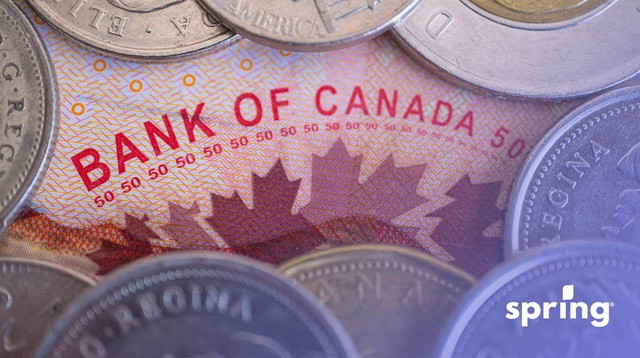We all know it’s crucial, for ourselves and future generations, that we act now to help protect the We all know it’s crucial, for ourselves and future generations, that we act now to help protect the environment. There are lots of tools we can use in the fight against climate change and reduce our carbon footprint, and it turns out your wallet is one of the most effective.
That’s the core concept behind carbon taxes and carbon levys. Basically, it’s a system for putting a price on pollution and greenhouse gases, which encourages people and businesses to find ways to reduce emissions that harm the environment.
In the summer of 2018 Canada’s federal government installed a carbon tax, which implemented a carbon pricing system in any provinces that didn’t already have a suitable system in place. This led to higher prices, based on the minimum price of the carbon levy, for fossil fuel energy sources like the gasoline you pump into your car or the natural gas you use to heat your home. This is because of the federal fuel charge.
To offset these higher costs, the federal government provides provincial and territorial carbon tax rebates in the form of quarterly payments (four payments per year) or annual payments, which, for some people, will surpass the higher fuel prices, so they’ll end up saving money in the end.
How The Carbon Tax Rebate Works
The simple answer is: it depends on which province you live in. Some of the provinces, like B.C. and Quebec, created their own carbon pricing systems before the federal government stepped in. The provinces of Alberta, Saskatchewan, Manitoba, and Ontario are required to use the federal government’s carbon tax system, although some of them are currently contesting this in court. In Febuary 2020, for example, Alberta’s Court of Appeal declared the federal carbon tax unconstitutional and “illegal” because it intrudes on provincial jurisdiction.
If you fall within the income threshold, which commonly includes lower-income households and single-parent families. However if you have a balance owing with the CRA, then you likely won’t receive your refund. Those who do will have it deposited directly into their account or a cheque sent out.
Here’s a quick breakdown of how the carbon tax rebate works with each of the provincial governments:
| PROVINCE | CARBON TAX REBATE DETAILS | GOVERNMENT WEBSITE LINK (for more details) |
| Alberta Rebates | $1,800 for a family of four $900 for a single adult |
Alberta carbon levy and rebates |
| British Columbia Rebates | Up to $504 for an individual, $253 for a spouse, or common-law partner, $126 for a child Rebate payment included in quarterly GST/HST credit |
BC climate action tax credit |
| Manitoba Rebates | $1,200 for a family of four$600 for a single adult Rebate payment included in federal tax return |
Manitoba and pollution pricing |
| Newfoundland and Labrador Rebates | $1,192 for a family of four $596 for a single adult |
Newfoundland and Labrador carbon pricing plan |
| New Brunswick Rebates | $760 for a family of four $380 for a single adult |
New Brunswick Climate Change Action Plan |
| Northwest Territories Rebates | $416 per adult $480 per child |
Implementing the NWT Carbon Tax |
| Nova Scotia Rebates | $824 for a family of four\$412 for a single adult | Nova Scotia and pollution pricing |
| Nunavut Rebates | No federal rebate | Nunavut and pollution pricing |
| Ontario Rebates | $1,120 for a family of four $560 for a single adult Rebate payment included in federal tax return |
Ontario and pollution pricing |
| Prince Edward Island Rebates | $880 for a family of four $440 for a single adult Discounts on some public programs |
P.E.I. saving you money while helping the environment |
| Quebec Rebates | No federal rebate Uses cap-and-trade system |
Climate Change Action Plan |
| Saskatchewan Rebates | $1,504 for a family of four $752 for a single adult Rebate payment included in federal tax return |
A Made-in-Saskatchewan Climate Change Strategy |
| Yukon Rebates | No federal rebate | Yukon and pollution pricing |
Canada Carbon Rebate
The Canada Carbon Rebate, formally known as the Canada Action Incentive Payments, is the new name for the rebate given to the federal rebate program. This covers certain provinces in Canada and has different amounts than provincial carbon pricing systems. The CCR also includes the rural supplement when pricing carbon rebates.
Rural Supplement
In Canada, rural supplements are also given to those in qualifying regions. This amount varies based on which province you’re in. Here are the amounts for the different provinces.
| Province | Rural Supplement Included |
| Alberta | $2,160 for a family of four $1,080 for a single adult |
| Manitoba | $1,440 for a family of four $720 for a single adult |
| Ontario | $1,344 for a family of four $672 for a single adult |
| Saskatchewan | $1,804.40 for a family of four $902.40 for a single adult |
| New Brunswick | $912 for a family of four $456 for a single adult |
| Nova Scotia | $988.80 for a family of four $494.40 for a single adult |
| PEI | $880 for a family of four $440 for a single adult |
| Newfoundland and Labrador | $1,430.40 for a family of four $715.20 for a single adult |
The Paris Agreement And Carbon Rebates
The Paris Agreement allows countries to transfer carbon credits to help other countries meet their carbon targets. These carbon credits are earned from reducing greenhouse gas emissions. The Carbon Rebate is Canada’s way of helping Canadians with the financial burden of the methods used by the Canadian government to address climate change and reduce emissions like ghg emissions.
When You Get Your Carbon Tax Rebate
For most of the provinces that provide carbon tax rebates, getting the rebate is pretty simple. All you have to do is file your income tax and benefit returns, and the rebate will be included in your tax return — aside from B.C., where the rebate accompanies the quarterly GST/HST credit.
If you need more details, check out the link for your province in the table above.
Using The Carbon Tax Rebate To Save
According to the federal government’s calculations, most Canadians who qualify for a carbon tax rebate will actually end up receiving more money than they pay through carbon taxes. This provides a good opportunity to increase your savings (or start saving if you haven’t already).
How Carbon Taxes Work With The Carbon Rebate
With the Canada Carbon Rebate, you may be wondering how the carbon taxes actually work to reduce emissions. Well, not everyone qualifies for the Canada Carbon Rebate, especially large industrial emitters. It encourages them to follow the climate policy and invest in cleaner technologies, green energy, public transit and electric vehicles.
When is the Last Canada Carbon Rebate Payment?
As of April, 2025, the federal government ended the federal fuel charge which means there is no longer a need for the Canada Carbon Rebate. For those who already filed their annual income tax return for 2024, your final payment should ahve already been received. For those who didn’t, it will be processed once the CRA has finalized your annual income tax return.
What The Government Does With The CCR Proceeds
The proceeds from the Federal Plan don’t just go into the Canada Carbon Rebate. The government is committed to returning the remaining proceeds to Indigenous groups as well as mediums and small businesses.
Save Money Without Lifting A Finger
One of the easiest ways to sock away some funds for the future is to set up a separate savings bank account. You can transfer your carbon tax rebate into this new account to get it started, or to give it a boost. Then get your bank to set up an automatic transfer system to divert a small chunk of money into the savings account with every paycheque. Eventually, you won’t even notice the diverted funds and the savings will grow over time.
Compounding Interest: The Magical Way To Increase Your Savings
If you’re not familiar with the concept of compounding interest, it basically means earning interest on top of interest. You can set up an automatic savings system like we described above, and if you choose an investment account to put your savings into the interest can compound and your savings will grow significantly over the next few years.
How significantly, you might ask? Plug some sample numbers into this compound interest calculator and you’ll see for yourself how magical a savings tool it can be.
There are a variety of investment accounts you can choose from, including GICs (guaranteed investment certificates), mutual funds, and ETFs (exchange-traded funds). Talk with your bank to figure out which type of account works best for your financial goals and preferred risk level.
Whether you’re looking to get a jump-start on your savings plan or you want to clear out some old debt so you can start saving from a clean slate, Spring Financial can help you get on solid financial footing. In around five minutes you can apply for a personal installment loan of up to $35,000 with great interest rates and no hidden costs. And if you’re approved the money can be in your account in less than 48 hours!
Spring Financial serves Canadians facing all types of credit situations with practical advice and credit-building solutions. We also offer quick-and-easy secured and unsecured installment loans to help you take those first steps to a better financial future. Apply today to see how we can help!








